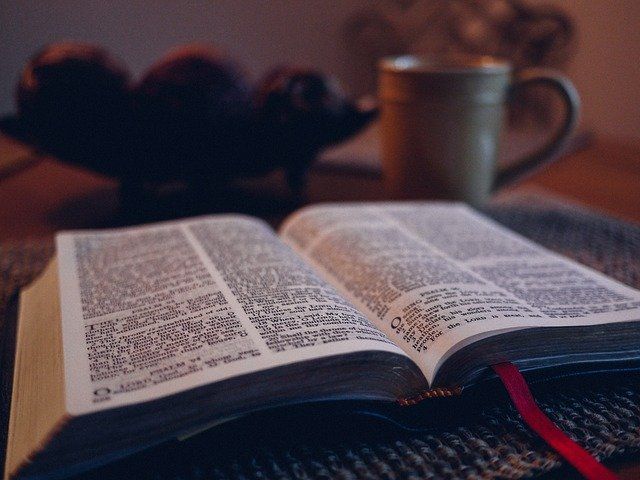There is no such thing in this sinful world as a perfect political party or an infallible political philosophy. We are dealing with men — men’s thoughts and opinions, men’s hopes and aspirations, men’s plans and intentions — so there is nothing spotless here. When considering how to vote, there are always pros and cons, reasons for support and arguments for caution. That is why it is unlikely that there can ever realistically be a true ‘Christian’ party. More likely there will be a range of different parties, with Christians in them.
The Bible gives us God’s spiritual programme for mankind, not a political party’s manifesto. The principles of God’s Word extend to every aspect of our lives and are relevant for every individual in every generation in every nation and society. All government is to be according to the rule of God’s Word, but that same Word does not direct the Christian, as such, to which political party he or she should support.

The General Election should cause us to reflect upon some deeper issues than those which are exclusively political and economic. A most significant Bible statement in the context of rule and authority is the psalmist’s strong assertion, ‘Blessed is the nation whose God is the Lord’ (Psalm 33:12). It is a forceful image. The blessed nation, the favoured nation, the prosperous nation (in a far deeper, richer and higher sense than generally is applied to the notion of prosperity) is that nation which acknowledges, worships, fears and follows after the Lord.
Can that be said of us? Our nation has been described in the past as a ‘Christian country’ and just occasionally one still hears the phrase used. Yet a Christian nation (if it is to be one truly in character and not merely in name) would surely have characteristics rather different from our own.
Turning to the psalmist again we recall David’s poignant cry, ‘If the foundations are destroyed, what can the righteous do?’ (Psalm 11:3). That is a most timely question for Christians to consider since just about every foundation you can think of seems to be under threat of destruction, and many have been ploughed up and carted away!

Morally, we have become a society where everyone does whatever seems right in his or her own eyes. Self-pleasure has become the guiding rule, with individuals and organizations insisting on ‘rights’ and ‘liberties’. Any sense of ‘absolute’ morality, or a fundamental concept of something being right and something being wrong, let alone a deeper conviction of righteousness and sin, has largely disappeared. Human sexuality, discipline and the sanctity of life are obvious but by no means exclusive illustrations of this.
Nationally and internationally, crime flourishes and terrorism continues to wreak havoc. The prison population is heaving at the seams and we hear of the imminent arrival of a prison ship because there is not enough room in Britain’s prisons to house all the guests.

Socially, marriage, family life and respect for authority are freely cast aside. The twice-weekly lottery feeds man’s greed, builds up and dashes his false hopes, and contributes to keeping him from God. The loosening legislation concerning the absolute distinctiveness of the Lord’s Day, according to God’s commandment, continues to have most harmful effects on society as a whole, and upon families and individuals in particular.
Theologically, churches are seeking ‘Christian unity’ that, in the light of Scripture, is neither Christian nor unity. The old and sure foundations, once believed and proclaimed, are ‘up for grabs’, and have been steadily abandoned. Sovereign creation, the law of God, the uniqueness of Christ, the exclusiveness of the gospel, the eternal reality of heaven and hell are all under the hammer of the twentieth-century Christian auctioneer. There is suspicion of creeds and confessions; doctrinal bases are being altered or ignored.

Constitutionally, all we can say is that it seems as if almost anything could happen.
The reason for this state of affairs is not that we have been governed by this political party or that one, but because we are less and less a nation governed by God’s Word. The Scriptures have been cast off among us, as has God himself. There is no fear of God. If ‘Blessed is the nation whose God is the Lord’, what follows when a nation abandons the Lord? or is abandoned by the Lord? ‘Righteousness exalts a nation, but sin is a reproach [disgrace] to any people’ (Proverbs 14:34).
Then ‘What can the righteous do?’ Not sit back passively and do nothing. Not succumb to despair. But trust in the Lord with confidence (never did Christians have more need of being ‘believers’!); humble ourselves before God; repent sincerely; pray earnestly and contend faithfully.
It is time to return to the old paths: the recovery of purity of worship; the preaching indoors and out of doors of the whole counsel of God; the pursuing of that holiness without which none of us shall see the Lord; the giving of ourselves to a fresh and earnest calling upon our covenant God that, jealous for his own great name, he would in wrath remember mercy, and turn us again (both nation and church) to himself, and save us from our enemies.
The title of this article is ‘Who will govern us now?’ The ultimate answer goes much further than who is in power on 2 May and when the new parliament reassembles on 7 May. The need of the hour, more than anything else, is that we be governed again by God.



